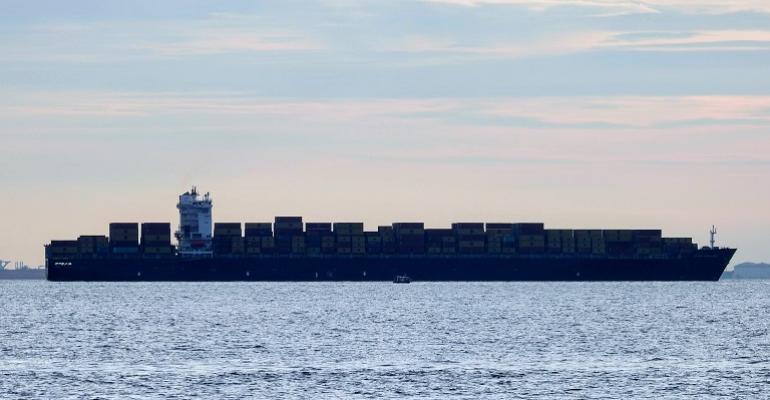
While spot container freight rates have stopped plunging in recent weeks, but there is little for lines to cheer about as they blank large numbers of Asia – US West Coast services ahead on Chinese New Year.
Analyst Drewry’s World Container Index (WCI) remained largely stable over the past week $2,132.49 per feu on Thursday, down 0.1% on the previous week, which had seen the first rise in the index for some 43 weeks.
“The latest Drewry WCI composite index of $2,132 per 40-foot container is now 79% below the peak of $10,377 reached in September 2021. It is 21% lower than the 10-year average of $2,695, indicating a return to more normal prices,” Drewry commented.
Related: Container spot freight rates rise for first time in 43 weeks
But while spot rates have finally flattened out there as little for lines to celebrate about as the sector heads into the seasonal lull that traditionally is seen after Chinese New Year on 22 January.
Even ahead of the holiday period carriers have already blanked much larger numbers of sailings compared to the last pre-pandemic year of 2019. According to Xeneta lines have blanked 220,489 teu capacity worth of sailings on the Asia – West Coast trade in the four weeks leading up to the holiday, compared to 29,796 teu in the same period in 2019.
On the Asia - North Europe trade blanked sailings have increased 715% against 2019 figures to stand at 226 000 teu, while those from the Far East to the US East Coast climbed by 340% to 140 000 teu.
“This really does demonstrate the low level of demand gripping the industry at present,” said Peter Sand, Xeneta’s Chief Analyst. “In a normal year, we tend to see very few blanked sailings in the run-up to this major Chinese holiday as shippers stock up on their inventories. So, this is a worrying development for carriers and, no doubt, a bad omen of what’s to come for the year ahead.”
For the week of Chinese New Year itself blanked sailings so a far announced are running at some 57,970 teu of capacity compared to 6,800 teu in 2019. “And these figures will likely increase in the run up to 22 January,” Sand noted.